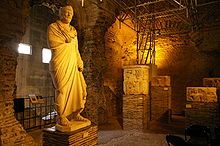Betting on the New York Ferris Wheel to Elevate Staten Island’s Fortunes
By PATRICK McGEEHAN, The New York Times
JULY 8, 2015
With so many moving parts, the wheel’s planners still face many hurdles. But Rich Marin, president and chief executive of the New York Wheel, said financing is not one of them.
His company is close to raising the full $500 million it will need to build the wheel along with a terminal building and parking garage, he said. Nearly one-third of that sum, $150 million, has been collected from 300 Chinese families that invested with the hope of receiving visas that would allow them to live in the United States.
Mr. Marin, who worked on Wall Street for years, said that the wheel “might not have been built” without the Chinese investors, and that their enthusiasm was a “very strong indicator” of the project’s viability. He added that a Chinese tour operator predicted that the wheel would be so popular with tourists from China that it would be wise to include a 600-seat food hall in the terminal.
…
The developers still hope to raise some of the financing for the $350 million project from foreign investors seeking visas through the EB-5 program, Mr. Capoccia said, but he declined to say how much.
…
In Mr. Marin’s offices in Manhattan, some bound copies of renderings of the wheel are titled “The Bloomberg Wheel.” Travis Noyes, the chief marketing officer for the wheel, said the books were intended as a tribute to former Mayor Michael R. Bloomberg for championing the project. But Mr. Noyes admitted that he had entertained the idea of signing up Mr. Bloomberg, a billionaire, or his company as a sponsor.


